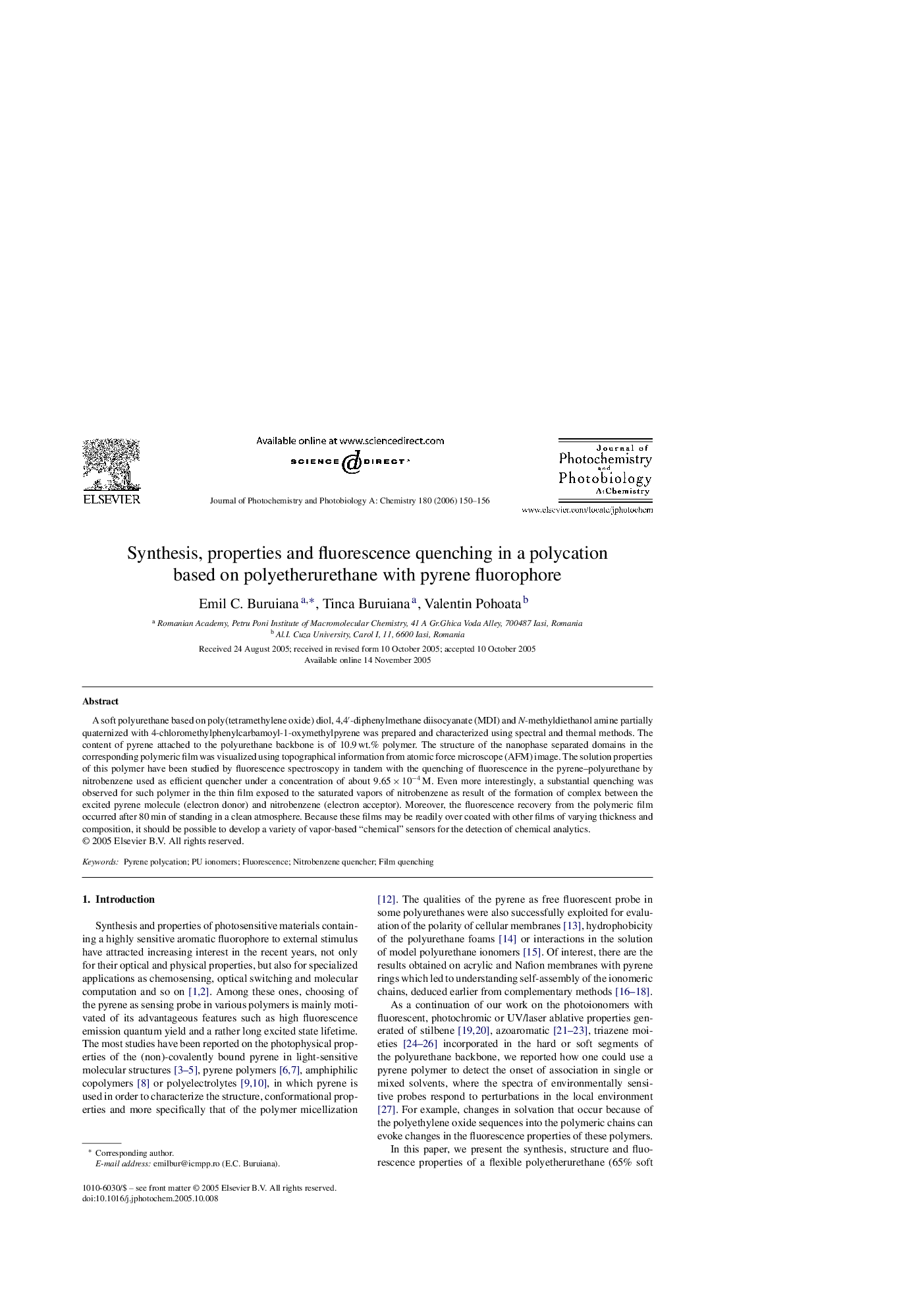| کد مقاله | کد نشریه | سال انتشار | مقاله انگلیسی | نسخه تمام متن |
|---|---|---|---|---|
| 28624 | 44082 | 2006 | 7 صفحه PDF | دانلود رایگان |

A soft polyurethane based on poly(tetramethylene oxide) diol, 4,4′-diphenylmethane diisocyanate (MDI) and N-methyldiethanol amine partially quaternized with 4-chloromethylphenylcarbamoyl-1-oxymethylpyrene was prepared and characterized using spectral and thermal methods. The content of pyrene attached to the polyurethane backbone is of 10.9 wt.% polymer. The structure of the nanophase separated domains in the corresponding polymeric film was visualized using topographical information from atomic force microscope (AFM) image. The solution properties of this polymer have been studied by fluorescence spectroscopy in tandem with the quenching of fluorescence in the pyrene–polyurethane by nitrobenzene used as efficient quencher under a concentration of about 9.65 × 10−4 M. Even more interestingly, a substantial quenching was observed for such polymer in the thin film exposed to the saturated vapors of nitrobenzene as result of the formation of complex between the excited pyrene molecule (electron donor) and nitrobenzene (electron acceptor). Moreover, the fluorescence recovery from the polymeric film occurred after 80 min of standing in a clean atmosphere. Because these films may be readily over coated with other films of varying thickness and composition, it should be possible to develop a variety of vapor-based “chemical” sensors for the detection of chemical analytics.
Journal: Journal of Photochemistry and Photobiology A: Chemistry - Volume 180, Issues 1–2, 15 May 2006, Pages 150–156